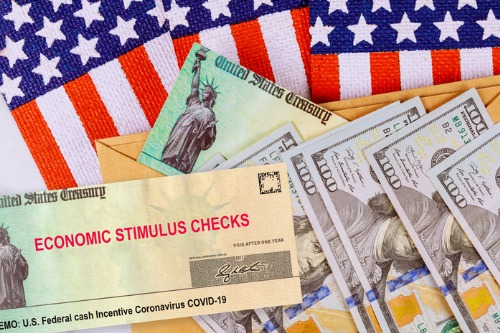Experts weigh in on what historic spending will do to the market

The Biden Administration’s $1.9 trillion stimulus package has been signed into law and is already making its presence felt across the US economy. While markets have already priced in the historic level of federal spending in the form of higher rates, we are also beginning to see material impacts as emergency unemployment benefits are extended and stimulus checks start arriving in mailboxes.
But what will this spending mean for the housing market and the mortgage industry? Beyond just a rising rate environment, what can mortgage professionals expect from a stimulus package that is explicitly designed to address the economic hardships felt disproportionately by lower-income Americans during the pandemic? While the full impact of the package will be felt over the coming weeks and months, some experts shared their housing market predictions with MPA.
“The stimulus payments just started hitting people’s bank accounts, so I can see a ramp-up in the next month or two,” said Kenon Chen, Executive VP of corporate strategy at Clear Capital. “The timing corresponds well with the seasonal buying season ramping up before the summer and the desire for remodeling projects to be complete and ready to be enjoyed by the time school is out.”
Chen noted that the stimulus package could give a bit more flexibility to homeowners with new equity accrued in their properties, looking to improve their properties with cash-out refis or pay off expensive debt. These are already ongoing trends, but with housing supply constrained and the market already white-hot, many homeowners may use this stimulus as a chance to solidify their financial footing and improve their homes.
For Henry Coffey, managing director at Wedbush Securities, the package’s impacts are likely to come in the form of overall consumer confidence in the economy. While he explained that this increased economic activity will drive treasury rates higher, pushing mortgage rates up with them, there are positives in the package for the housing market as a whole. He expects that even if rising rates impact affordability, at a macro level there’s more than enough housing demand to absorb that extra cost.
Much of the impact on housing, Coffey noted, will come down to how people spend their extra cash. If the majority of delinquent renters use their stimulus to pay down back rent, as some studies have shown they probably will, the impact on harder-hit multifamily units will be significant. The same goes for homeowners who have spent a year in forbearance.
Coffey noted, too, that he doesn’t see any inherent risk to the housing market or mortgage industry in this stimulus package. Rising rates are not inherently risky in and of themselves and while some noise has been made about impacts on the deficit, Coffey highlighted what seems to be a fact of government these days: when they’re in power, neither Republicans nor Democrats care about deficits.
At the bottom end, Coffey believes that the bill will put much-needed money out into the economy to help towns, cities, states navigate the remainder of the pandemic. Crucially, it puts plenty of money into getting more shots in more arms. While extra stimulus checks will help, Coffey believes that getting families vaccinated and putting kids back in school will make a meaningful change for the better.
As for mortgage professionals getting ready to navigate in a post-stimulus market, Coffey believes that they’re already taking steps in the right direction.
“They’re probably already there, they’re focused on purchase money mortgages,” Coffey said. “They’ve got to have a mortgage business that focuses on homeownership and home investing because the refinance market is going to cool off. But mortgage brokers get it, they’re always ahead of the curve in terms of how they plan their business.”



